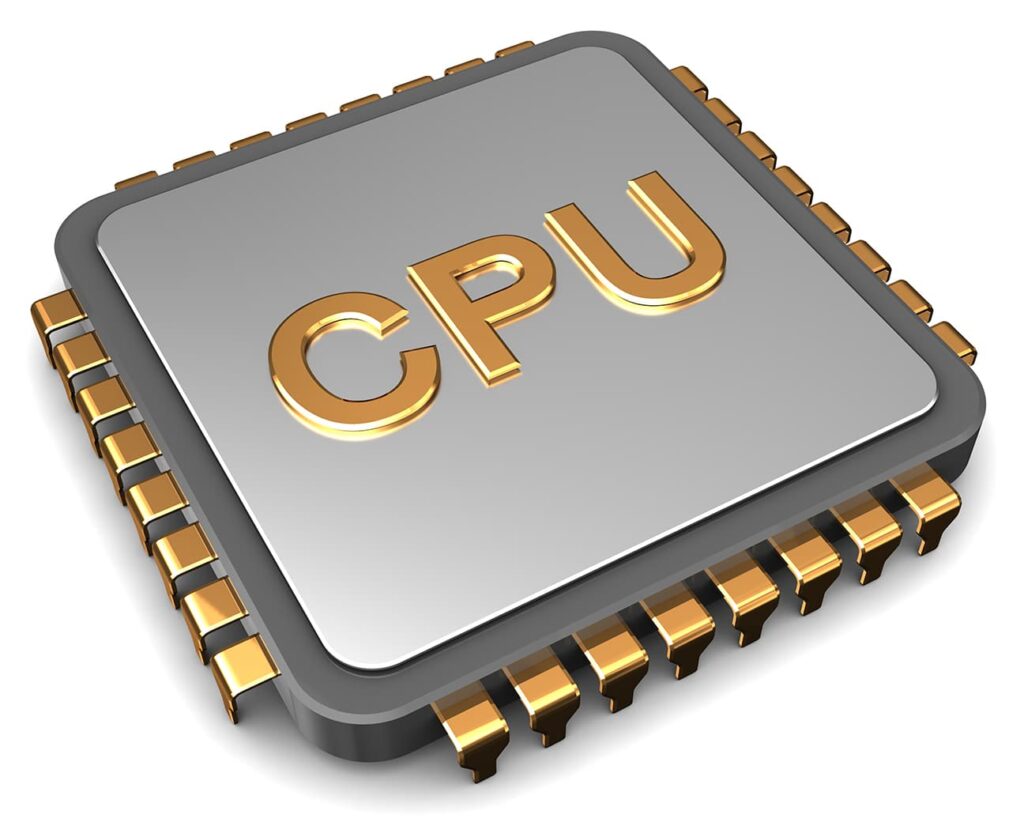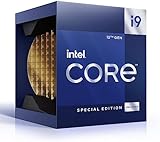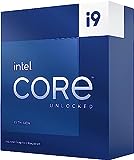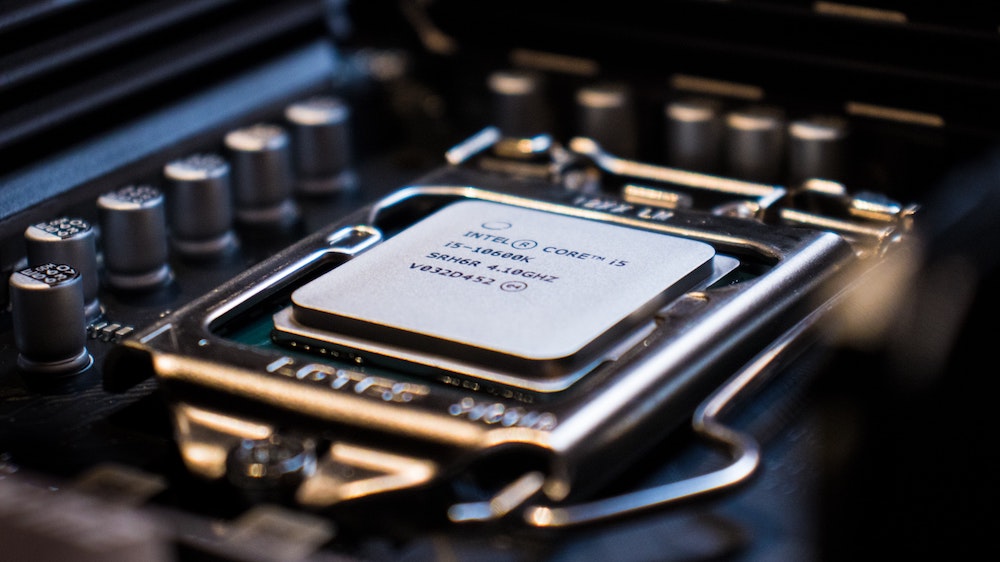1. Introduction: Understanding the Role of CPUs in Performance Optimization

CPUs (Central Processing Units) play a crucial role in the performance optimization of various computing systems. As technology advances, CPUs have evolved from early innovations to modern architectures, continuously pushing the boundaries of processing power and efficiency. Understanding the positive impact of CPUs on performance is essential for maximizing the capabilities of computing devices, whether it’s for gaming, data analysis, or multitasking. However, along with the benefits, it is also important to be aware of potential pitfalls and limitations that can affect CPU performance.
This article takes a deep dive into the world of CPUs, exploring their evolution, positive impacts, strategies for optimization, potential challenges, future developments, and real-world case studies, to provide a comprehensive understanding of the role CPUs play in performance enhancement.
Table of Contents
1. Introduction: Understanding the Role of CPUs in Performance Optimization
1.1 Importance of CPUs in Performance Enhancement
When it comes to performance optimization, CPUs play a crucial role in determining the speed and efficiency of our electronic devices. Whether it’s our smartphones, laptops, or gaming consoles, the CPU (central processing unit) acts as the brain of the system, executing instructions and performing calculations.
The CPU’s impact on performance is undeniable. A powerful CPU can handle complex tasks quickly, resulting in smoother multitasking, faster data processing, and enhanced user experiences. On the other hand, a sluggish CPU can leave us waiting for ages, frustrated by slow loading times and unresponsive applications.
1.2 Overview of the Article
In this article, we’ll take a deep dive into CPUs, exploring their evolution from early innovations to modern architectures. We’ll discuss the positive impact CPUs have on performance in various areas and highlight their potential pitfalls. Additionally, we’ll share strategies and best practices for optimizing CPU performance, ensuring that you get the most out of your devices.
So, buckle up and get ready to unravel the fascinating world of CPUs and their influence on performance!
2. The Evolution of CPUs: From Early Innovations to Modern Architectures
2.1 Early CPU Designs and Milestones
To understand the current state of CPUs, it’s essential to trace their evolution from their humble beginnings. We’ll delve into the early CPU designs and significant milestones that paved the way for the powerful processors we have today. From the bulky mainframes of the past to the miniaturized chips that fit in our pockets, we’ll explore how CPUs have transformed over the years.
2.2 Advancements in CPU Architectures
Advancements in CPU architectures have been instrumental in pushing the boundaries of performance. We’ll delve into the key developments, such as pipelining, superscalar execution, and branch prediction, that have revolutionized CPU design. Understanding these architectural improvements will shed light on how modern CPUs achieve higher speeds and better efficiencies.
2.3 Impact of Moore’s Law on CPU Development
Moore’s Law, the famous observation by Intel co-founder Gordon Moore, has had a profound impact on CPU development. We’ll explore how this principle, which states that the number of transistors on a chip doubles approximately every two years, has driven the relentless pace of innovation in CPU technology. We’ll also discuss the challenges that arise as we approach the physical limits of Moore’s Law.
3. Harnessing the Power: Exploring the Positive Impact of CPUs on Performance
3.1 Increased Processing Speed and Efficiency
One of the primary benefits of powerful CPUs is their ability to handle tasks with incredible speed and efficiency. We’ll examine how advancements in CPU technology have led to significant improvements in processing speed, allowing us to complete complex calculations, render graphics, and run resource-intensive applications more swiftly than ever before.
3.2 Enhanced Multitasking Capabilities
Multitasking has become an integral part of our daily lives, and CPUs have played a crucial role in enhancing our ability to juggle multiple tasks simultaneously. We’ll explore how modern CPUs enable seamless multitasking, allowing us to switch between applications effortlessly and experience smooth performance even in demanding situations.
3.3 Improved Graphics and Gaming Performance
For gamers and graphics enthusiasts, CPUs have been instrumental in delivering stunning visuals and immersive experiences. We’ll discuss how CPUs collaborate with graphics processing units (GPUs) to handle complex rendering tasks, showcasing the advancements that have elevated gaming graphics to new heights.
3.4 Accelerated Data Analysis and Machine Learning
In the era of big data and artificial intelligence, CPUs have become vital for accelerating data analysis and machine learning tasks. We’ll explore how CPUs work in tandem with specialized hardware, like tensor processing units (TPUs), to process and analyze vast amounts of data, enabling rapid insights and powering advancements in various fields.
4. Optimizing CPU Performance: Strategies and Best Practices
4.1 Utilizing Parallel Processing Techniques
To maximize CPU performance, harnessing the power of parallel processing is key. We’ll delve into techniques and technologies, such as multi-threading and SIMD (single instruction, multiple data) instructions, that allow CPUs to execute multiple tasks concurrently. Understanding these strategies will help you leverage the full potential of your CPU.
4.2 Implementing Advanced Compiler Optimization
Compiler optimization plays a critical role in squeezing every drop of performance out of a CPU. We’ll discuss various compiler optimization techniques that transform high-level code into efficient machine code, resulting in faster execution and improved overall performance.
4.3 Efficient Memory Management
Memory management can significantly impact CPU performance. We’ll explore best practices for efficient memory allocation, caching techniques, and memory access patterns that maximize data throughput and minimize costly delays. By optimizing memory usage, you can ensure your CPU operates at its full potential.
4.4 Overclocking and Cooling Solutions
For enthusiasts seeking the utmost performance from their CPUs, we’ll touch upon the realm of overclocking. We’ll discuss the benefits and potential risks of pushing CPUs beyond their stock settings, as well as the importance of effective cooling solutions to maintain stable performance under heavy workloads.
So, get ready to turbocharge your CPU performance with these strategies and best practices!5. Potential Pitfalls: Identifying and Addressing Limitations in CPU Performance
5.1 CPU Bottlenecks and Performance Bottlenecks
Ah, the dreaded bottleneck. No, we’re not talking about that frustrating moment when you’re stuck in traffic on your way to the office. In the world of CPUs, bottlenecks refer to situations where the performance of your processor is held back by other components in your computer system.
Imagine having a high-performance CPU that’s ready to unleash its full power, only to be limited by slow memory, outdated storage devices, or a sluggish graphics card. These bottlenecks can prevent your CPU from reaching its maximum potential and result in less than optimal performance.
To address this, it’s important to ensure that all components in your computer system are well-matched to prevent bottlenecks. Upgrading your memory, storage devices, and graphics card can help alleviate these limitations and allow your CPU to shine.
5.2 Thermal Throttling and Overheating Issues
Let’s face it, CPUs can get hot. Like really hot. And when they reach a certain temperature, they start to throttle their performance to prevent overheating and potential damage. This is known as thermal throttling.
Thermal throttling can significantly impact the performance of your CPU, as it reduces the clock speed and power consumption to keep temperatures in check. So, while your CPU may have the potential for lightning-fast speeds, it may be forced to slow down to keep from melting your motherboard.
To combat this, proper cooling solutions are crucial. Investing in a high-quality CPU cooler, ensuring proper airflow in your computer case, and applying thermal paste correctly can help keep temperatures in check and prevent thermal throttling from hampering your CPU’s performance.
5.3 Compatibility and Integration Challenges
In a world where technology evolves at a breakneck pace, compatibility and integration challenges can rear their ugly heads. Upgrading your CPU may require updates to your motherboard’s BIOS or even a complete overhaul of your computer system, as not all CPUs are compatible with every motherboard.
It’s essential to do your research and ensure compatibility before making any CPU upgrades. Double-checking socket types, motherboard compatibility lists, and BIOS versions can save you from the frustration of discovering your new shiny CPU won’t work with your existing setup.
5.4 Power Consumption and Energy Efficiency Concerns
As CPUs become more powerful, they also tend to consume more power. This increase in energy consumption not only impacts your electricity bill but can also put stress on your power supply unit (PSU) and overall system stability.
Choosing a CPU with good energy efficiency can help mitigate power consumption concerns. Manufacturers are continually improving their CPUs’ power efficiency, ensuring you can have both great performance and reasonable energy use. Additionally, keeping an eye on your computer’s power management settings and optimizing them can also contribute to reducing power consumption.
6. The Future of CPUs: Anticipated Developments and Implications for Performance
6.1 Exploring Emerging CPU Technologies
The future of CPUs is an exciting realm of innovation and possibilities. As technology advances, we can anticipate the development of new and improved CPU technologies that will take performance to new heights.
From multi-core architectures to advancements in chip manufacturing processes, CPUs are expected to become even more efficient and powerful. Emerging technologies like 3D-stacked transistors, neuromorphic computing, and specialized accelerators hold the promise of revolutionizing CPU performance and enabling new applications.
So, hold on to your hats, folks. The future of CPUs is looking bright, and we can’t wait to see what comes next!
6.2 Impact of Quantum Computing on CPU Performance
Picture this: CPUs that can tap into the potential of quantum mechanics to solve complex problems at speeds that would make even the most powerful traditional CPU jealous. That’s the dream of quantum computing.
While quantum computing is still in its infancy, its potential impact on CPU performance is undeniable. Quantum CPUs, or qubits, have the potential to perform calculations at exponentially faster speeds than classical CPUs, opening up new possibilities in fields like cryptography, optimization, and scientific simulations.
However, it’s important to note that we’re still a long way from commercial quantum CPUs taking over our desktops. The technology faces significant challenges, such as maintaining qubit stability and scalability. But the potential is there, and who knows what the future holds?
6.3 Predictions for CPU Performance in the Next Decade
Crystal balls might not be the most accurate forecasting tool, but we can take a stab at predicting where CPU performance is headed in the next decade.
As Moore’s Law shows signs of aging, the traditional trajectory of doubling transistor counts every couple of years may slow down. However, CPUs are likely to continue evolving through architectural optimizations, improved manufacturing processes, and innovations like heterogeneous computing.
We can expect CPUs to become more power-efficient, with a focus on specialized and application-specific architectures. Machine learning and artificial intelligence will further shape CPU design, enabling smarter and more efficient processing.
In summary, the future of CPUs holds the promise of exciting advancements and performance boosts. Buckle up, folks, because the next decade is sure to be an exhilarating ride!
7. Case Studies: Real-World Examples of CPU Performance Optimization
7.1 Case Study 1: Improving CPU Performance in High-End Gaming PCs
Gamers, unite! When it comes to gaming, CPU performance is crucial for achieving smooth frame rates and immersive gameplay.
In our first case study, we delve into the realm of high-end gaming PCs, where every ounce of CPU performance matters. From overclocking techniques to optimizing game settings, we explore various ways to squeeze the most out of your CPU for an unparalleled gaming experience.
We’ll also dive into the impact of different CPUs on gaming performance, comparing the performance of popular gaming CPUs across a range of games and scenarios.
Stay tuned as we unravel the secrets to unlocking peak performance in your gaming rig!
8. Conclusion: Balancing the Benefits and Challenges of CPUs for Enhanced Performance
In conclusion, CPUs have a significant positive impact on performance optimization across various computing systems. Through advancements in architecture and design, CPUs have enabled increased processing speed, improved multitasking capabilities, enhanced graphics and gaming performance, and accelerated data analysis. However, it is crucial to acknowledge and address potential pitfalls such as CPU bottlenecks, thermal throttling, compatibility issues, and power consumption concerns.
As we look to the future, emerging technologies and developments, such as quantum computing, hold promises for even greater advancements in CPU performance. By implementing effective strategies and best practices, and considering real-world case studies, we can strike a balance between harnessing the benefits and overcoming the challenges to fully optimize CPU performance and unlock the potential of computing devices.
If you need any recommendation to what CPU’s are good and you should purchase. I would recommend purchasing this. ( click the images below, they will transport you to where you buy them). Also If you are having problems with PC performance and speed the check this out.


FAQ
1. What is the role of CPUs in performance optimization?
CPU, or Central Processing Unit, plays a vital role in optimizing the performance of computing systems. It is responsible for executing instructions and performing calculations, making it a critical component in various tasks such as data processing, gaming, and multitasking.
2. How do CPUs impact performance?
CPUs positively impact performance by increasing processing speed and efficiency, enabling faster data analysis, enhancing graphics and gaming capabilities, and facilitating multitasking. They are designed to handle complex calculations and execute instructions swiftly, directly influencing the overall performance of computing devices.
3. What are some potential pitfalls affecting CPU performance?
There are several potential pitfalls that can affect CPU performance. These include CPU bottlenecks, where the CPU becomes a limiting factor in overall system performance, thermal throttling and overheating issues, compatibility and integration challenges, as well as power consumption and energy efficiency concerns. You will be fine if you follow this blog.
4. How can CPU performance be optimized?
CPU performance can be optimized through various strategies and best practices. This includes utilizing parallel processing techniques, implementing advanced compiler optimization, efficient memory management, and employing overclocking and cooling solutions. Additionally, staying updated with the latest advancements and emerging technologies can help maximize CPU performance.





